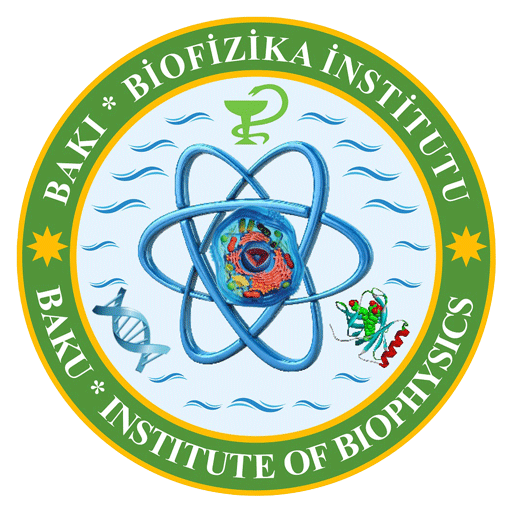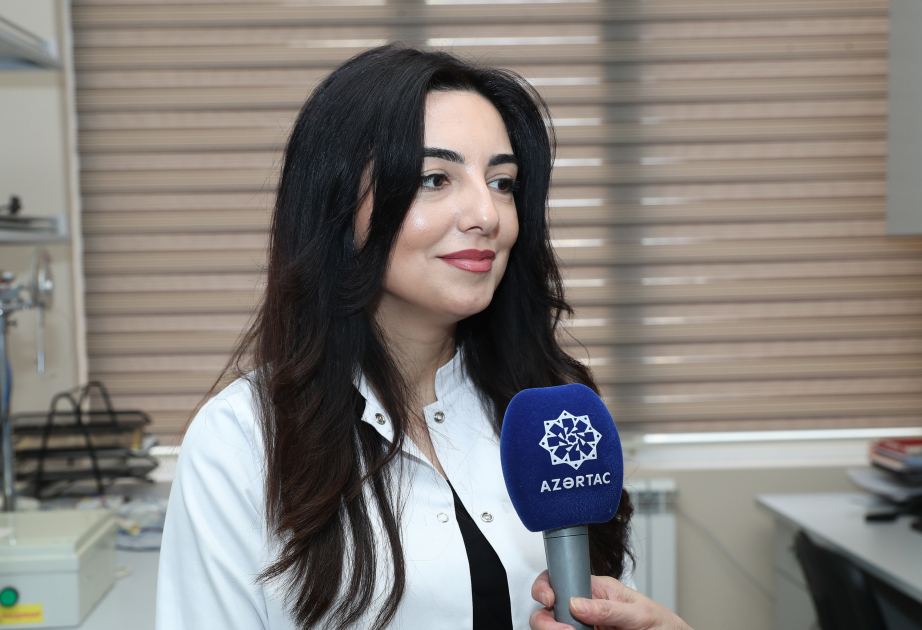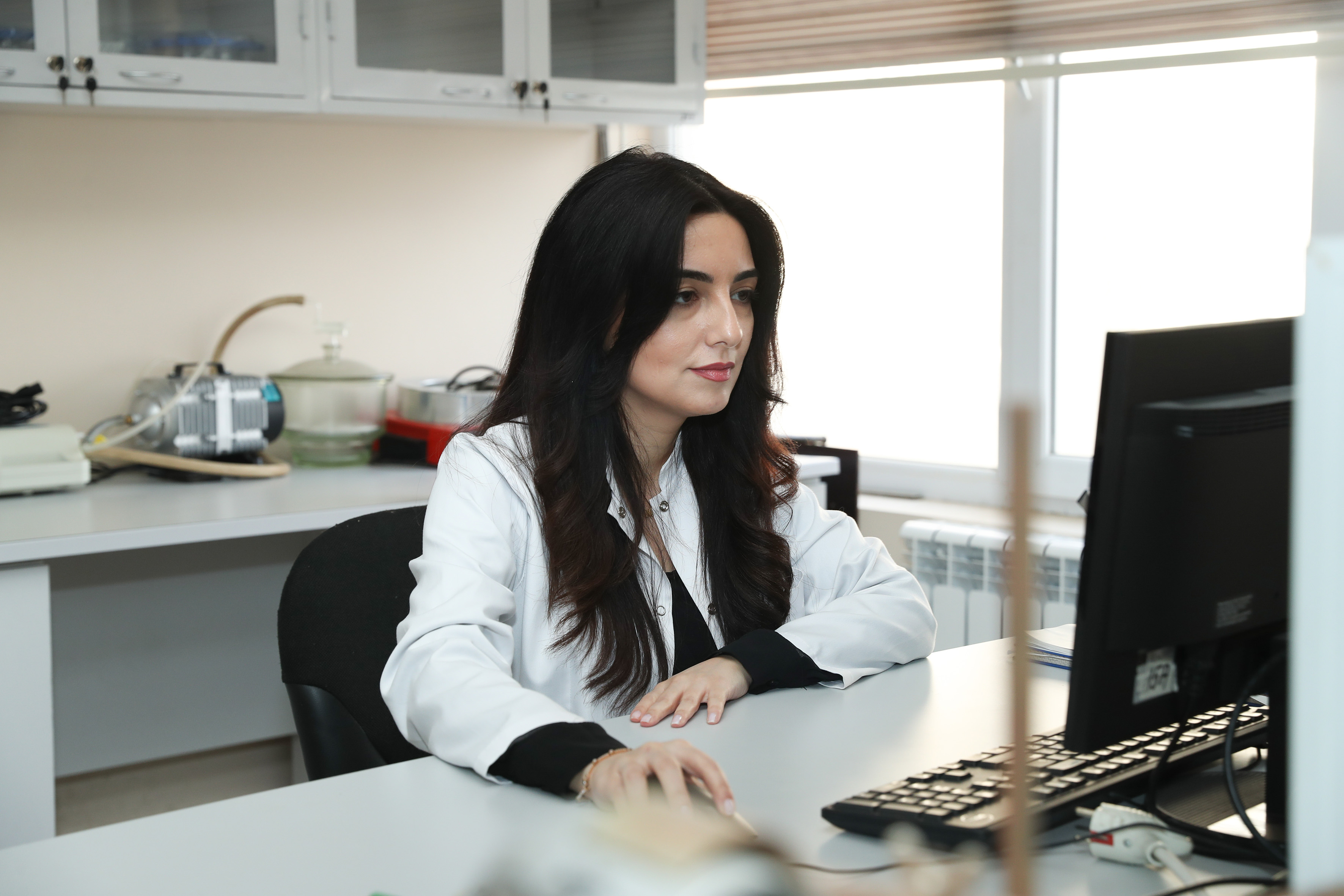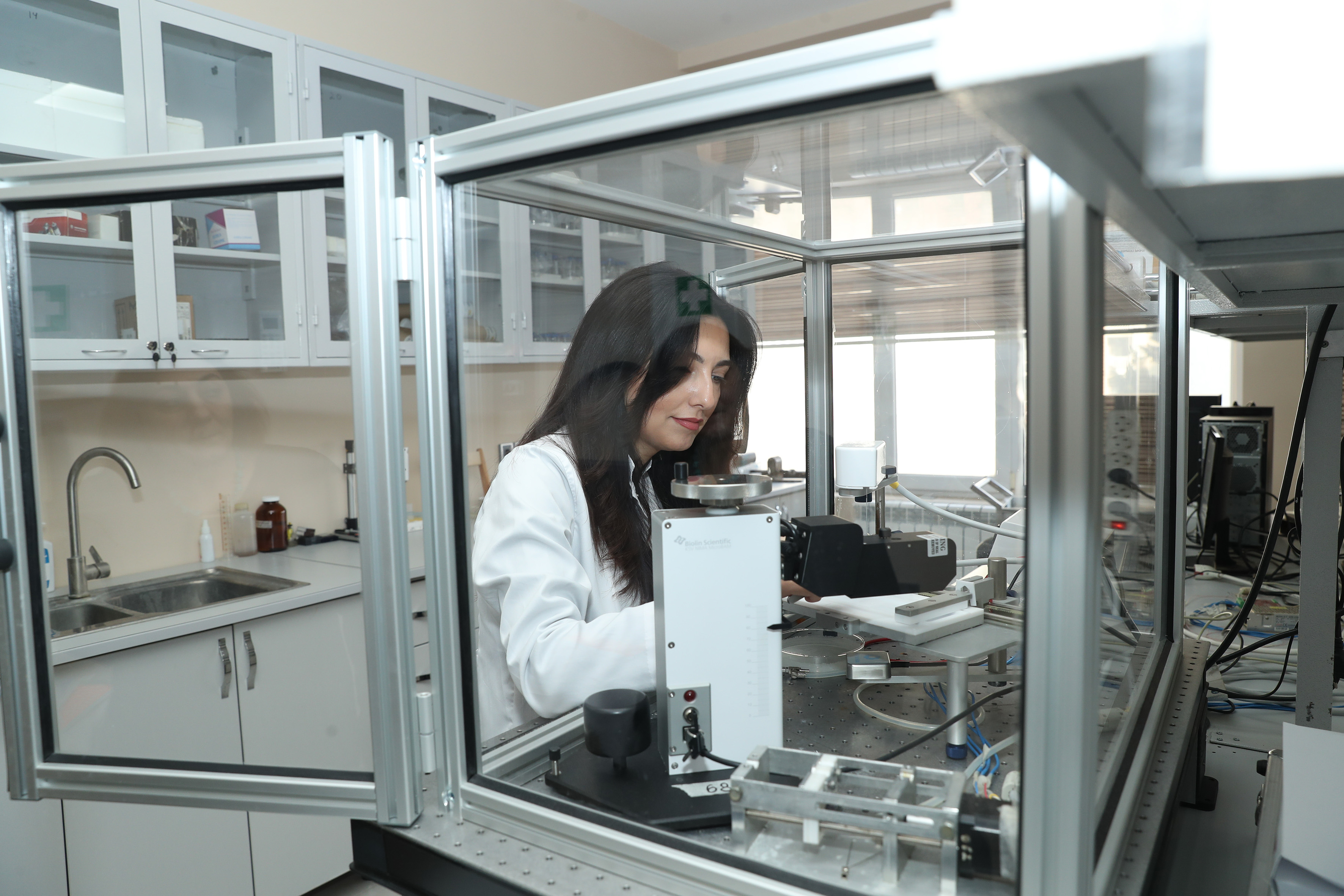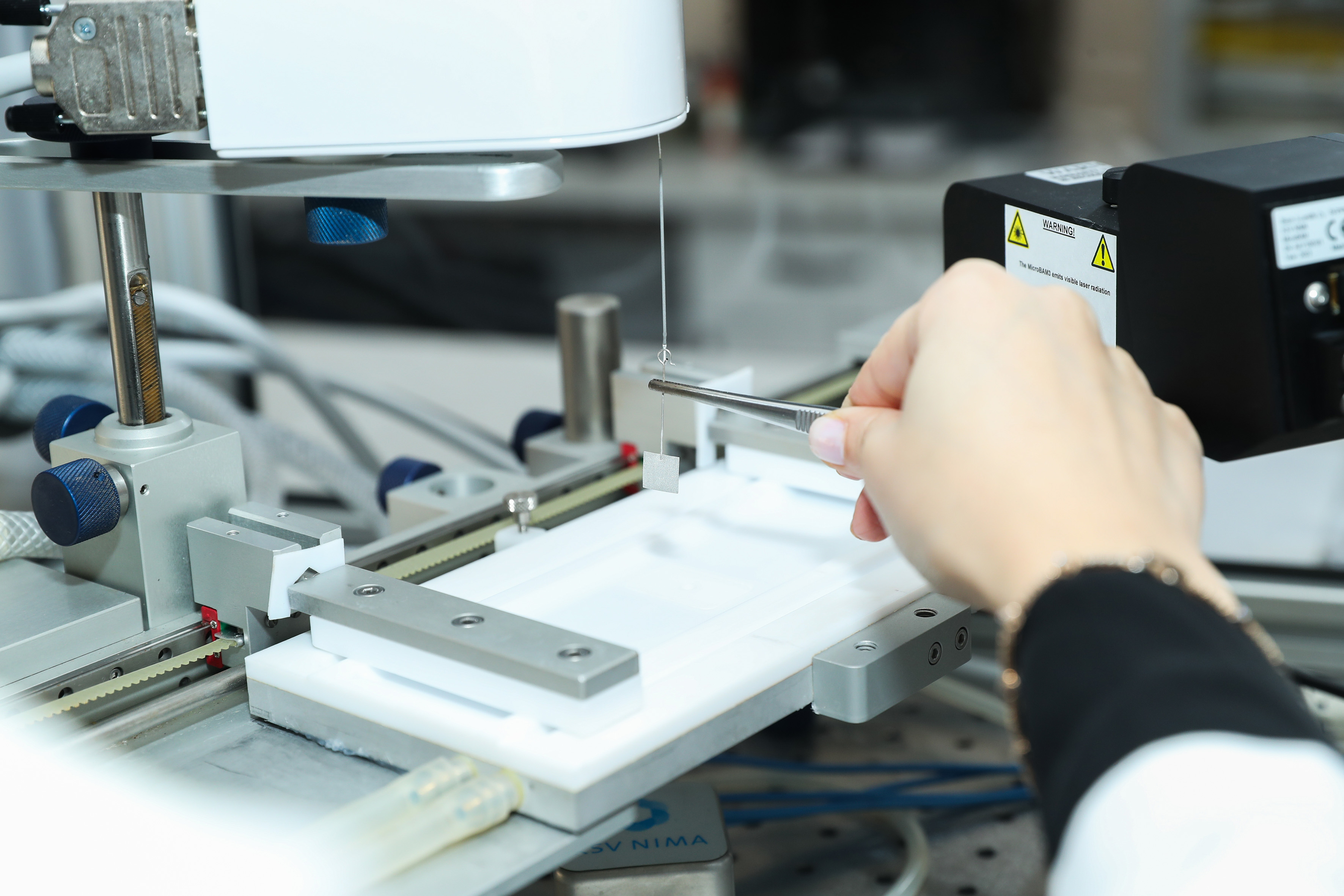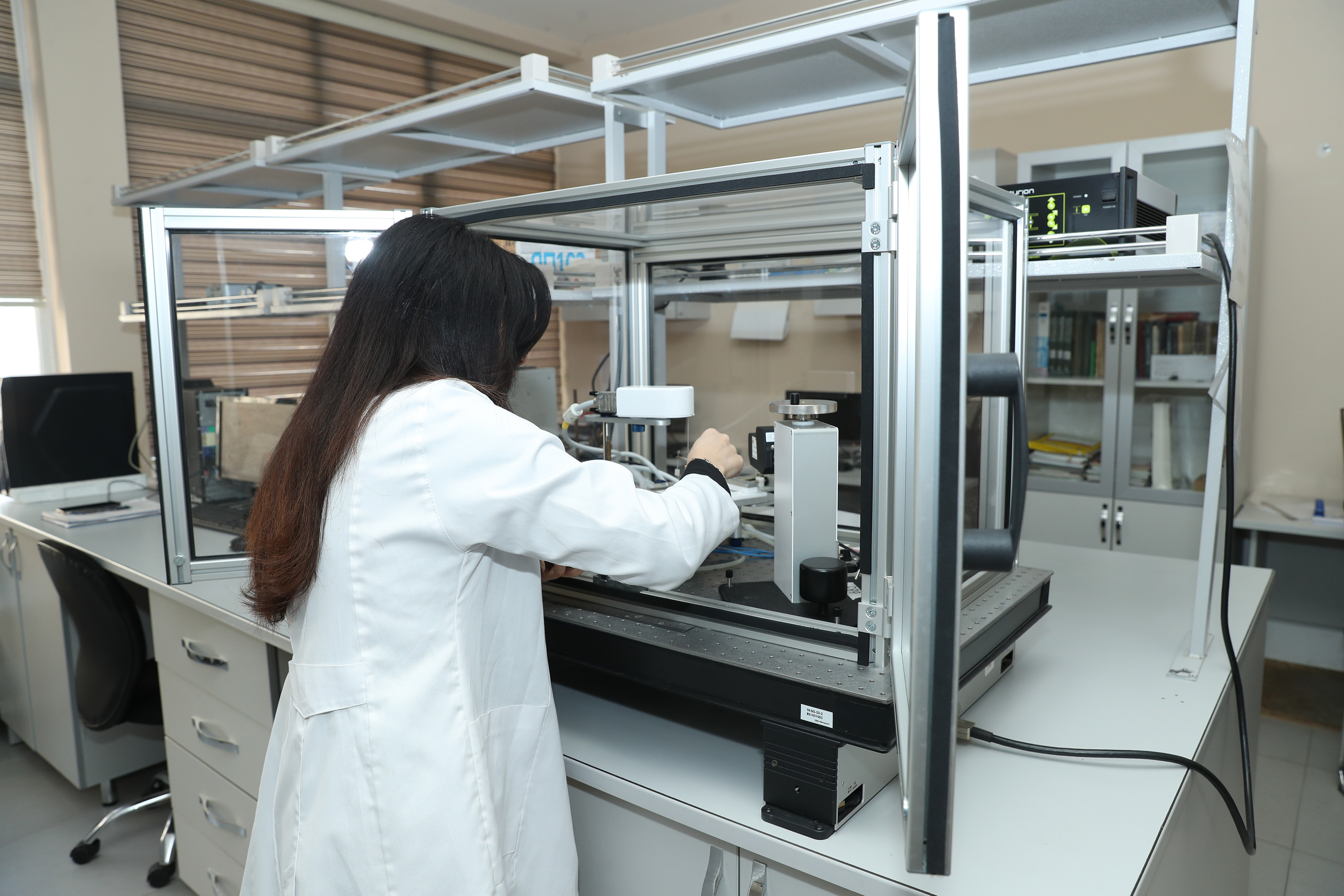Young researcher gave an interview to AZERTAC
Researcher: One of the Main Challenges is the Difficulty of Diagnosing Cancer in its Early Stages – INTERVIEW
Cancer research is a multidisciplinary field that brings together various scientific disciplines, and researchers' theoretical and practical approaches further increase interest in this topic. With scientific advancements, progress in the diagnosis and treatment of cancer offers great hope in the fight against this disease. However, considering the increasing number of people suffering from and succumbing to cancer each year, conducting numerous studies to better understand the molecular mechanisms of cancer is essential. Matanat Bakhishova, a researcher at the Institute of Biophysics under the Ministry of Science and Education, shared her research findings on cancer with AZERTAC.
What motivated your interest in cancer research?
One of the most important factors that led me to this field was witnessing people close to me suffer from cancer and observing their struggle. This showed me that cancer is not just a medical problem but a disease with numerous emotional and social impacts that profoundly change lives. This realization encouraged me to better understand the power of science and to explore approaches to tackling this issue.
My scientific advisor, Corresponding Member of ANAS Oktay Qasimov, played a special role in guiding me toward this field. His deep knowledge, his teaching of the intricacies of scientific research, and his continuous support inspired me to take an interest in such a complex area as cancer. Additionally, my advisor helps me be more creative in my research and conduct thorough analyses.
What key problems are you trying to address in your research?
The main goal of our research is to study the molecular and cellular mechanisms of cancer in depth. One of the key challenges we face in this field is the difficulty of diagnosing cancer in its early stages. To address these issues, we use the latest advancements in biophysics and molecular biology to develop new diagnostic methods. I believe that in the future, with increased financial support for science and access to modern technologies, we will be much closer to achieving our goal.
What results have you achieved in your research?
As I mentioned, my research focuses on cancer, which is one of the key research directions of the Institute of Biophysics. In collaboration with the Azerbaijan National Oncology Center, we conduct research not only on model systems but also on living human cells. EPR studies using spin labels with anticancer properties have shown that these labels penetrate cancer cell membranes more than healthy cell membranes.
Additionally, studies conducted at 44°C, which corresponds to the temperature used in hyperthermia treatment in oncology, have demonstrated that high temperatures can stimulate the enhanced uptake of anticancer agent models into cells in some individuals. Moreover, cancer is associated with the acidification of the extracellular environment, and neutralizing pH has been observed to increase the effectiveness of treatment in certain individuals. These findings can contribute to personalized medicine and help predict treatment efficacy in advance.
Another project, which is also my dissertation topic, is being conducted in collaboration with Istanbul University. In this project, we are working on an anticancer pentapeptide derived from rice bran. This peptide is non-toxic to the body and can bind to several important integrins. This property makes it a potential candidate not only for fighting cancer but also for combating SARS-CoV-2 infections. Furthermore, the multifunctional peptide’s ability to bind to different proteins can be modulated by replacing specific points with D-isomers. Due to its multifunctional biological properties, this anticancer pentapeptide could serve as a key molecule in the development of pharmaceutical drugs.
Doxorubicin (DOX) is a well-known anticancer agent with severe side effects. To reduce DOX's toxic effects and detect its excess levels in the bloodstream, we have developed a biosensor in collaboration with the Italian National Research Center. This biosensor can detect DOX with ultra-high sensitivity. This research was directly applied to samples obtained from the National Oncology Center, and the results were confirmed.
In which international journals have your research findings been published?
Our scientific results have been published in several international journals indexed in scientific databases such as Scopus and Web of Science. These include high-impact journals such as:
- Journal of Biomolecular Structure and Dynamics (Q1)
- ACS Applied Nano Materials (Q1)
- Journal of Molecular Graphics and Modelling (Q2)
- Biophysical Chemistry
- Acta Naturae
Have you participated in international conferences or projects?
Yes, we have presented our achievements at various international conferences, where they have received great interest. Additionally, as the Institute of Biophysics, we have participated in the "Tubitak" project in collaboration with Istanbul University. The results obtained from this project have been published in several prestigious journals. Our collaboration with Istanbul University is ongoing.
